do to create and build their companies?
Dav id Y. Choi
*
, Edmund R. Gray
College of Business Administration, Loyola Marymount University, One LMU Drive,
Los Angeles, CA 90045-2659, U.S.A.
1. Socially responsible entrepreneurs:
What do they do to build and grow
their companies?
In contrast to [Milton] Friedman, I do not believe
maximizing prots for the investors is the only
acceptable justication for all corporate actions.
The investors are not the only people who matter.
Corporations can exist for purposes other than
simply maximizing prots. John Mackey, Found-
er and President of Whole Foods ( Reason, 2005)
We are helping to create a new mind-set that
responsible practices and protable practices are
one and the same. It’s more difcult to manage
responsibly and protably but it’s within our hu-
man means. It just takes being intentional about
being good as well as being successful. Tom
Chappell, Founder and President of Tom’s of
Maine (Chappell, 1993,p.35)
2. The socially responsible
entrepreneur
More than 35 years ago the late Mi lton Fried man
wrote a much celebra ted article for Th e New Y o r k
Business Horizons (2008) 51, 341352
www.elsevier.com/locate/bushor
KEYWORDS
Entrepreneurship;
Triple bottom-line;
Corporate social
responsibility;
Sustainability;
Management practices
Abstract This paper examines 30 entrepreneurs who created protable companies,
and who were also exemplary in their efforts towards social responsibility. It examines
their management practices to understand how these socially responsible entrepre-
neurs created and built their companies. The study reveals that these socially respon-
sible entrepreneurs founded their companies, at least in part, to achieve idealistic
objectives, and pursued nancial and non-nancial objectives simultaneously. Most
avoided nancing from institutional sources, hired employees for their shared values,
and shrewdly leveraged their social identities to differentiate themselves in the
marketplace. Many of these entrepreneurs made unusual efforts to create a strong
organizational culture and implement sustainable operational processes to meet their
self-imposed ethical standards. These socially responsible entrepreneurs gave a sub-
stantial amount of their prots to causes of their choosing, and volunteered themselves
as role models for other businesses and entrepreneurs to follow.
#2008 Kelley School of Business, Indiana University. All rights reserved.
* Corresponding author.
E-mail addresses: dchoi@lmu.edu(D.Y. Choi),egray@lmu.edu
(E.R. Gray).
0007-6813/$ see front matter #2008 Kelley School of Business, Indiana University. All rights reserved.
doi:10.1016/j.bushor.2008.02.010
Times Magazine, the title of which aptly summed up
his thesis: ‘‘The social responsibility of business is to
increase its prots’’ ( Friedman, 1970 , p. 6). While
the position of the renowned Nobel laureate may be
accepted by many people in today’s business world,
a surprisingly large number of intriguing, though not
widely studied, entrepreneurs have adopted an al-
ternative business philosophy. These so-called so-
cially responsible, values-led/centered, ethical ,or
susta inable ent repreneurs ende avor to be goo d a s
well as successful by simu ltaneous ly achievi ng eco-
nomic (prot), enviro nmental, and social goals- the
so-cal led tri ple bott om-line ( Elki ngton, 1994 ). They
build pr otable compa nies, and also signica ntly
contr ibute to the great er good of soc iety , a n out-
come that they believe tradition al capitali sm has
been ineff ective pr oducing.
The purp ose of the pap er is not to fu el ano ther
de bat e o n pro t max im iza tio n v e rsu s c o rpo ra te so-
cia l res pon sib il ity . R a the r , it aim s t o exa min e the
bu sin ess pra cti ce s o f soci all y res po nsi bl e e n tre pre -
neu rs by in vest iga tin g the ke y non -c onv ent iona l pol i-
cie s and dec isi on s t h e y hav e emp loy ed in bui ldi ng
suc ces sfu l tri ple bot tom -li ne co mpa nie s. The aut hor s
be liev e the ndi ng s wil l off er hel pf ul gu ida nce for
tho se who as pir e t o fol low in thei r f o ots tep s.
Corpor ate social respo nsibili ty (CSR) is not a new
conce pt. It w a s rs t dened in 1953 by Bowen (195 3,
p. 8) as, ‘ ‘th e obl igation of business men to pursue
those polici es, to make those decisions , o r t o fol low
those lines of actio n which are desirabl e i n terms of
the objectiv es and values of our society .’ ’ McGu ire
(1963, p. 77) added that, ‘ ‘th e idea of soc ial re spon-
sibilities suppose s that the corpora tion has not only
econom ical and lega l obl igations but also certain
respo nsibilit ies to society that ext end beyond
these. ’ ’ Hay and Gray (1974) proffere d a histor ical
evolutio n mod el that depicted the CSR conce pt
prog ressing through three pha ses ( Figure 1 ). P h a s e
I w as the Frie dman perspecti ve of prot maximiz a-
tion. The second pha se, truste eship, which emerged
in the

- 오늘 본 자료가 없습니다.
- [경영정보시스템, MIS] 경영정보시스템(MIS)의 발전과정, 기능과 경영정보시스템(MIS)의 계획절차, 운영요소 및 경영정보시스템(MIS)에 대한 제언(사례 중심)
- [MIS, 경영정보시스템] 세븐일레븐 재팬 7-Eleven Japan 사례분석
- 국내 화장품 산업의 정의, 발전과정, 특징, 현황, 전망
- 세계화 시대의 국제매너 개념, 나라별 특징, 매너, 사례, 예절, 예절, 관리, 역할, 기법, 시사점, 나의견해, 총체적 조사분석
- 국가별 매너 ,개념, 에티켓, 나라별 특징, 매너, 사례, 예절, 예절, 관리, 역할, 기법, 시사점, 나의견해, 총체적 조사분석
해당 정보 및 게시물의 저작권과 기타 법적 책임은 자료 등록자에게 있습니다. 위 정보 및 게시물 내용의 불법적 이용,무단 전재·배포는 금지되어 있습니다. 저작권침해, 명예훼손 등 분쟁요소 발견 시 고객센터에 신고해 주시기 바랍니다.



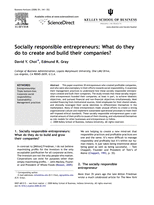
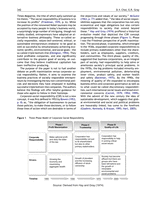
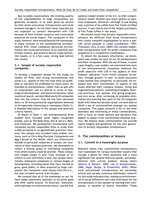
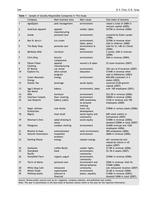
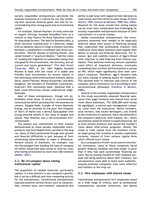
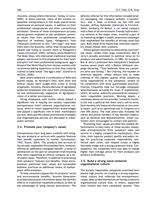
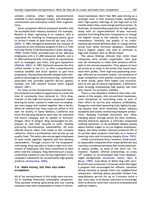
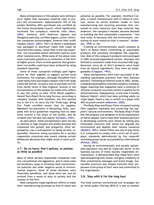
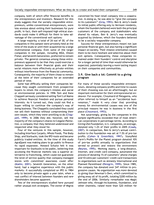
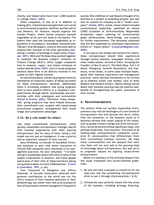
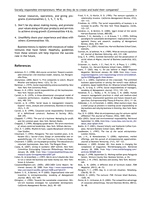
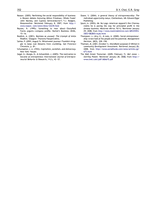
 분야
분야

